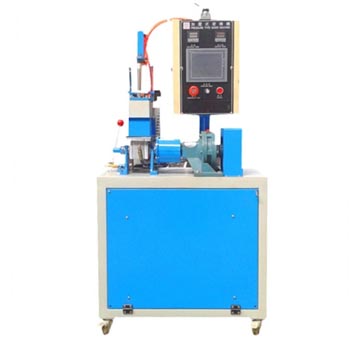🧪 Can a Lab Kneader Handle High-Viscosity Materials?
In the world of polymer research, rubber compounding, silicone blending, and specialty chemicals, high-viscosity materials present a unique set of processing challenges. These high-viscosity compound materials is hard to mix and flow freely , and they require intensive mixing under pressure and shear. So, an important question concerned by many lab-scale operations:
👉 Can a laboratory kneader effectively handle high-viscosity materials?
✅ The Answer: Yes – If It’s the Right Lab Kneader
A well-designed lab dispersion kneader, especially for these lab kneader featured with sigma blades, powerful motors, and vacuum-tight chambers , it is specially constructed and tailored to handle high-viscosity materials effectively. Here’s why:
🔧 1. Powerful Mixing Blades for Tough Compounds
Lab dispersion kneaders usually adopt sigma blades or Z-blades, it is specially designed to apply strong shearing and folding forces to viscous materials. This special feature makes these laboratory kneading machine are ideal for kneading and blending rubber, silicone, plastic masterbatches, gum base, and high-viscosity adhesives.
⚙️ 2. Robust Motor & Gearbox System
The lab kneader is specially designed and built for handling highly viscous compounds ,which requires high torque, not just high speed. Usually for these quality lab dispersion kneaders ,they are equipped with low-speed, high-torque motors to keep material moving steadily even under heavy load.
🌡️ 3. Precise Temperature Control
High-viscosity materials are easy to stick to rotor or chamber , they often need controlled heating or cooling to maintain their processability. Lab kneaders can be configured with jacketed chambers and temperature controllers to manage the thermal conditions during mixing.
🔍 4. Vacuum Capability (Optional)
High-viscosity materials—especially in the chemical, food, or medical sectors—often need air-free processing. Many lab kneaders come with vacuum sealing and degassing functions to ensure better product quality and minimize voids or bubbles.
🧪 5. Small Batch, High Precision
Unlike large-scale dispersion kneader for rubber, These lab kneaders (0.05L to 25L capacity) are ideal for testing small batches of highly viscous materials. This high viscosity lab mixer allows for efficient R&D, color matching, or formula testing before scaling up to production.
🔍 Key Features That Make It Possible
1️⃣ Heavy-Duty Sigma Blades
Sigma or Z-type blades create high shear forces, kneading even stiff, sticky materials efficiently. Perfect for rubber, silicone, adhesives, and other thick pastes.
2️⃣ High-Torque Motor & Gearbox
Lab dispersion kneaders are usually equipped with low-speed, high-torque drive systems ,so that handle materials that resist flow. For example, a 20L lab kneader may use a 7.5kW motor or higher.
3️⃣ Temperature-Controlled Mixing Chamber
These lab kneader is also designed with jacketed mixing chambers ,which allow heating or cooling via oil, steam, or water. Thus maintaining the right viscosity during mixing is very critical for compound consistency.
4️⃣ Vacuum Mixing Option
For air-sensitive or bubble-prone materials, vacuum kneaders remove trapped gases, improving product quality.
5️⃣ Compact But Versatile
Simptek are direct manufacturer of rubber mixing machine ,we can custom and design various kneaders as per your needs . From 0.5 L lab kneader to 110 L industrial dispersion kneader or intersive banbury mixer , they all can be tailored according to different material and feature. For these lab-scale dispersion kneader, they allow small-batch testing and formulation optimization without wasting materials, suitable for university & institute research etc.
🛠️ So What Can Lab Kneader Work for High Viscosity Materials?
✅ Minimum & maximum working volume
✅ Motor power & torque rating
✅ Blade type (sigma or spiral)
✅ Chamber material (SS304/316 for chemical resistance)
✅ Cooling/heating system compatibility
✅ Vacuum and PLC control options
When Choosing a Lab Kneader For High-viscosity Material, You Need To Consider The Following Factor :
✅ Powerful motor (torque rating)
✅ Sigma blade configuration
✅ Temperature control jacket
✅ Stainless steel construction
✅ Vacuum sealing (optional)
✅ PLC automatic control (optional)
Whether you are facing the problem to handing touch or high-viscosity, sticky material ?
Whether you are running R&D for rubber, experimenting with silicone , hot-melt adhesives, or plastic compounds in small batches, or blending a specialty adhesive, then contact with us now .
Selectiing a high-performance lab kneader for your high-viscosity kneader can save you time, cost, enhance your laboratory research efficiency , and also decrease material waste.







